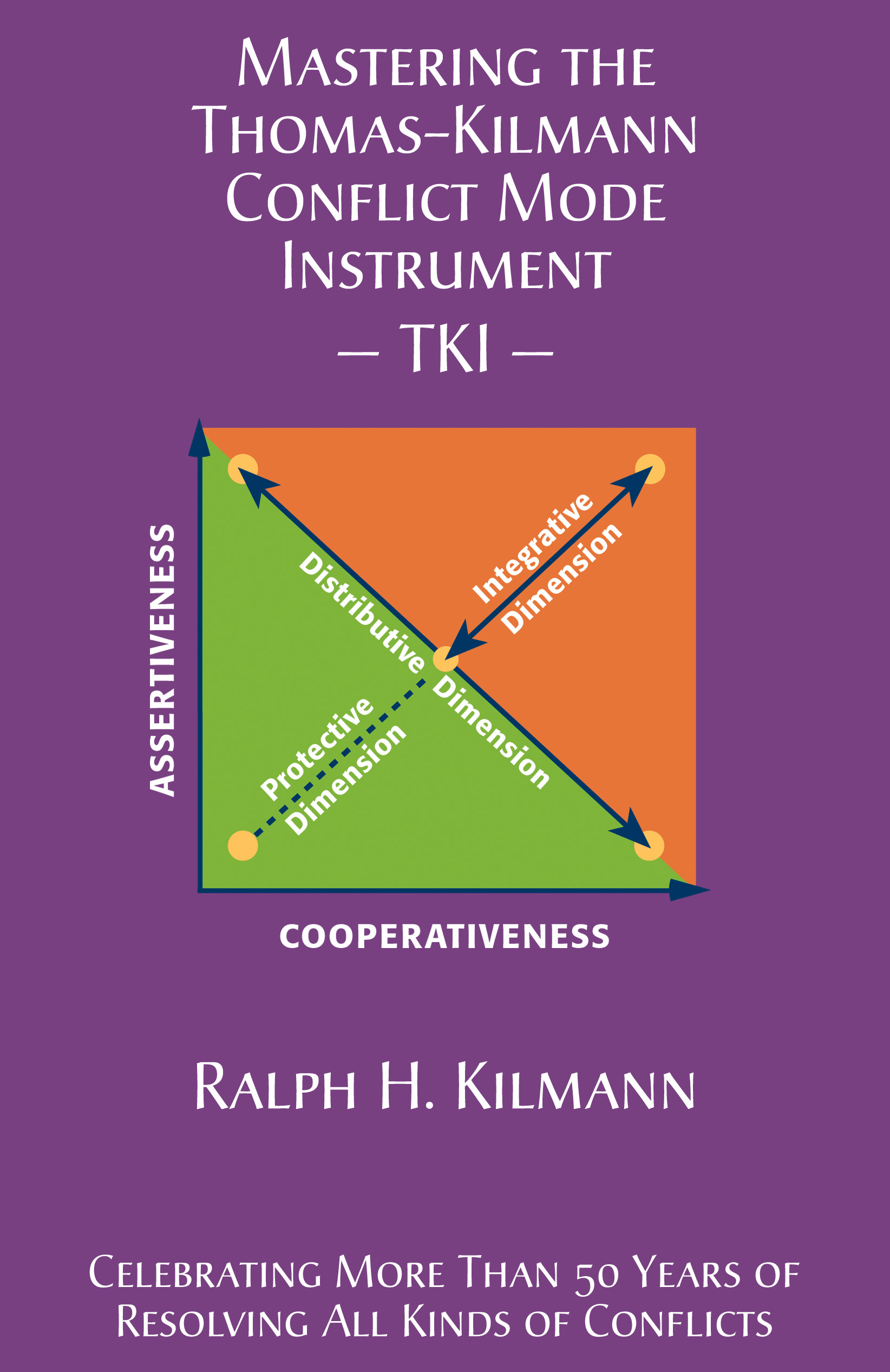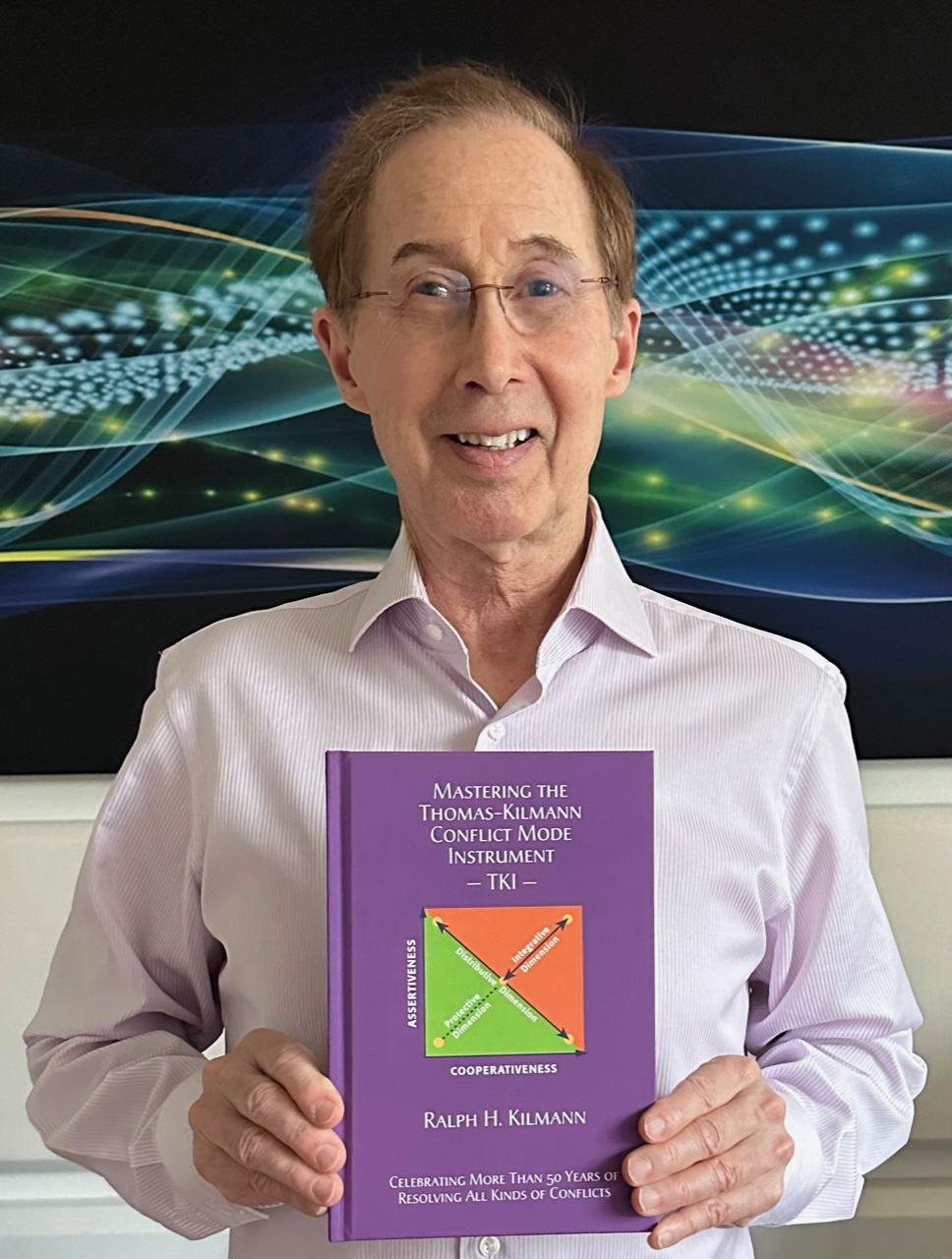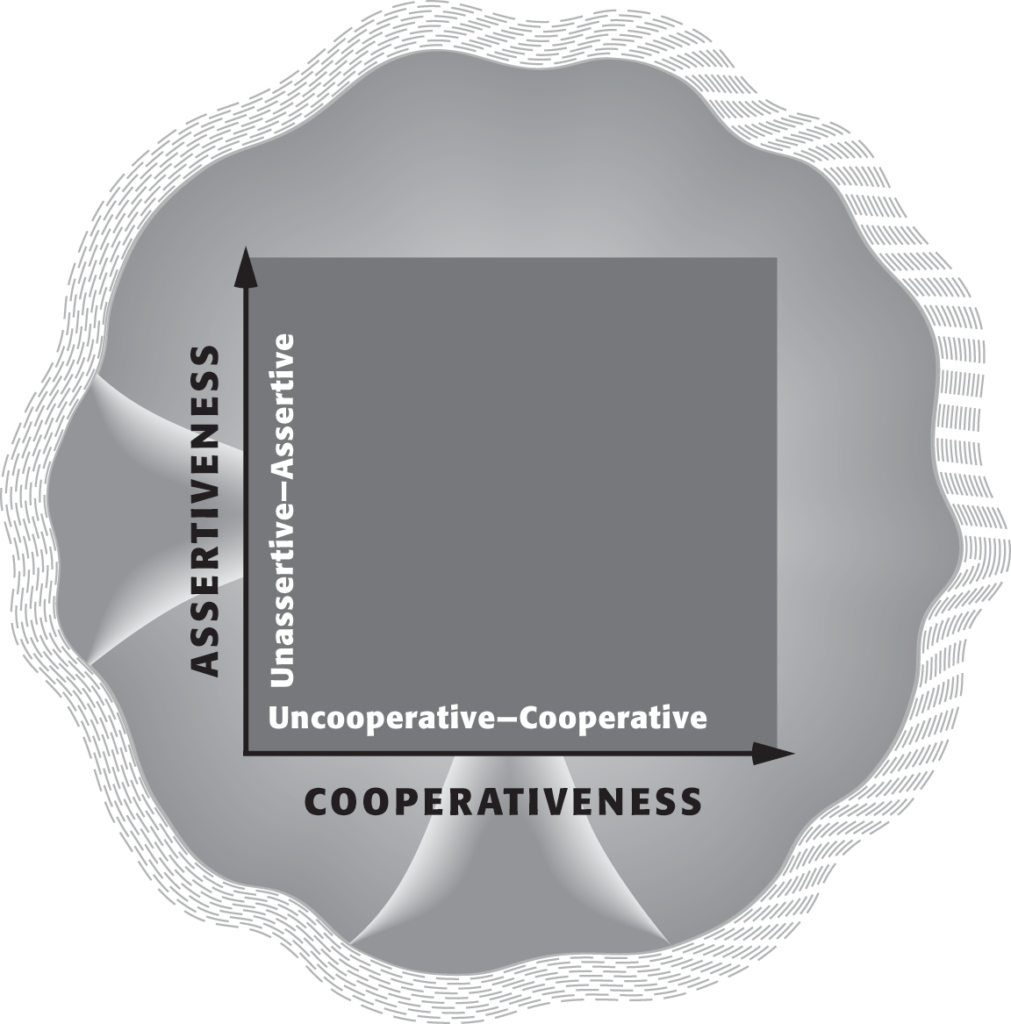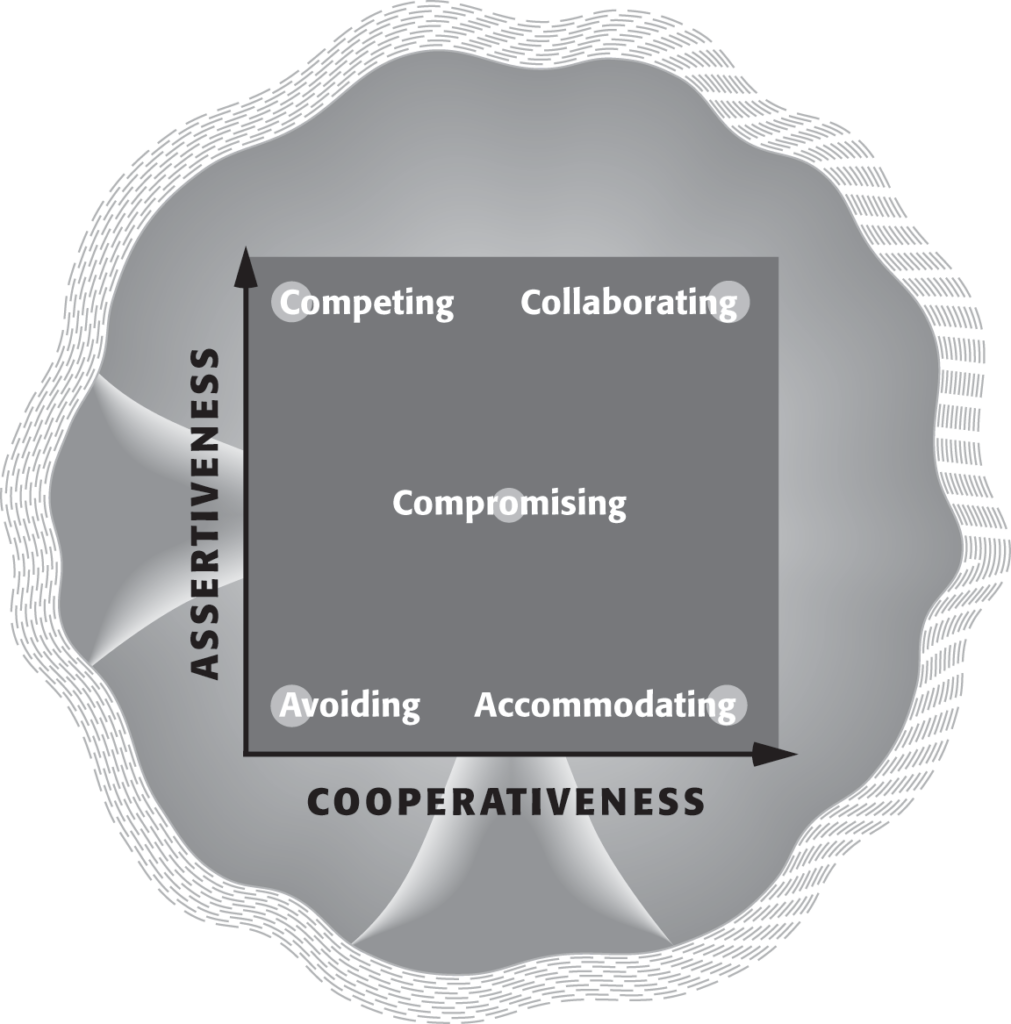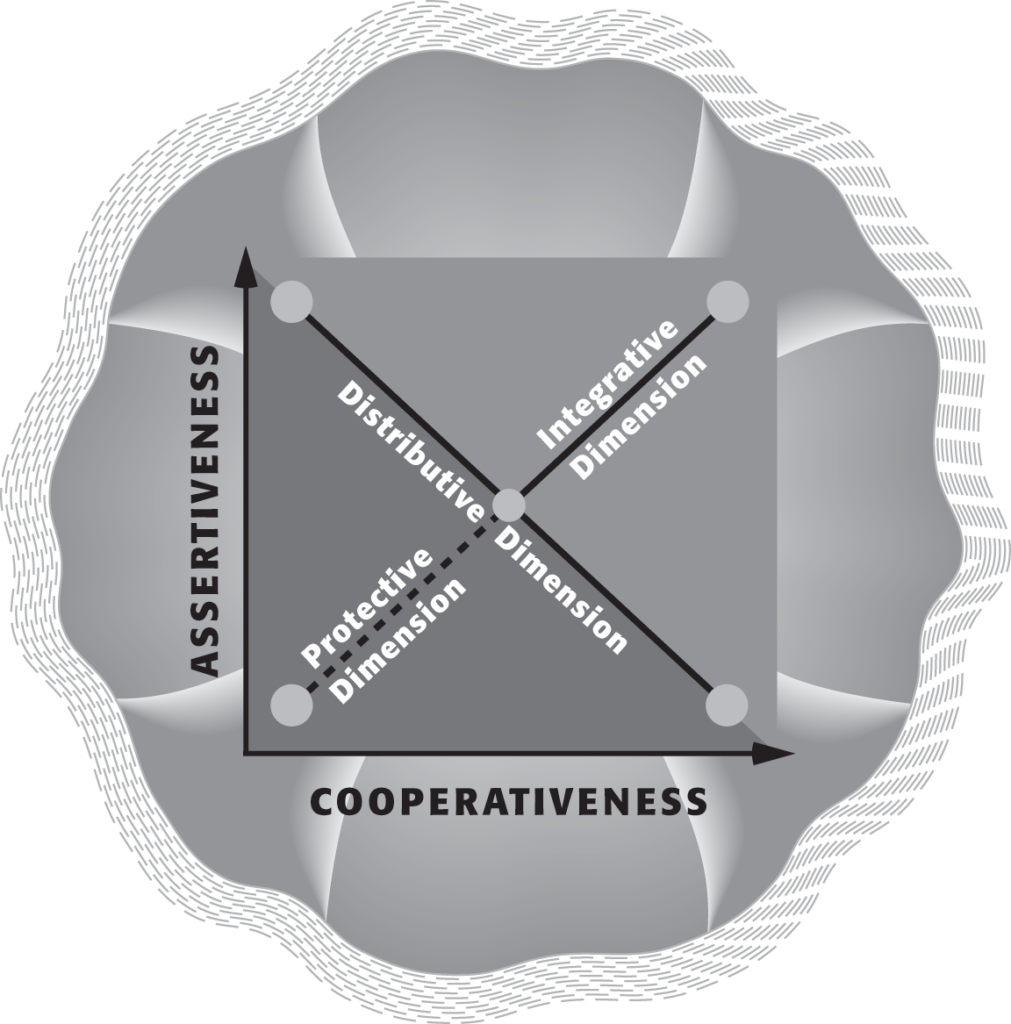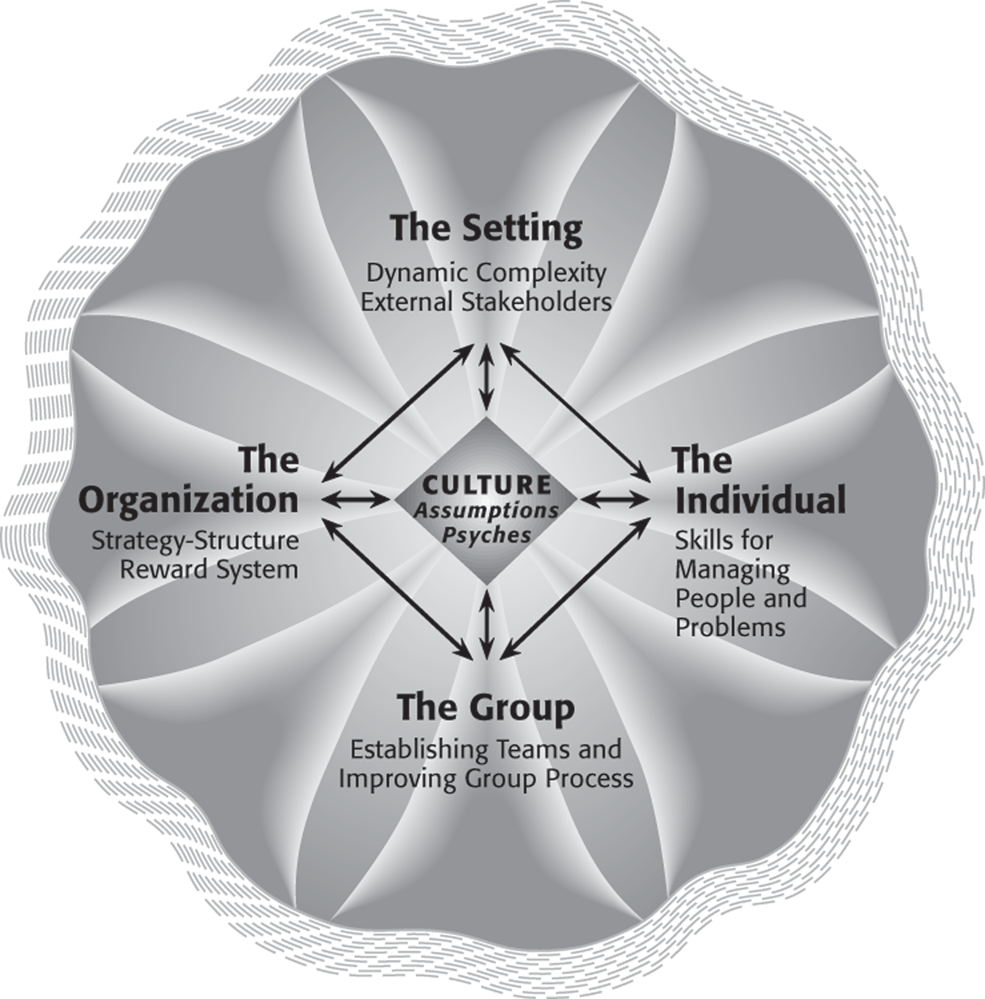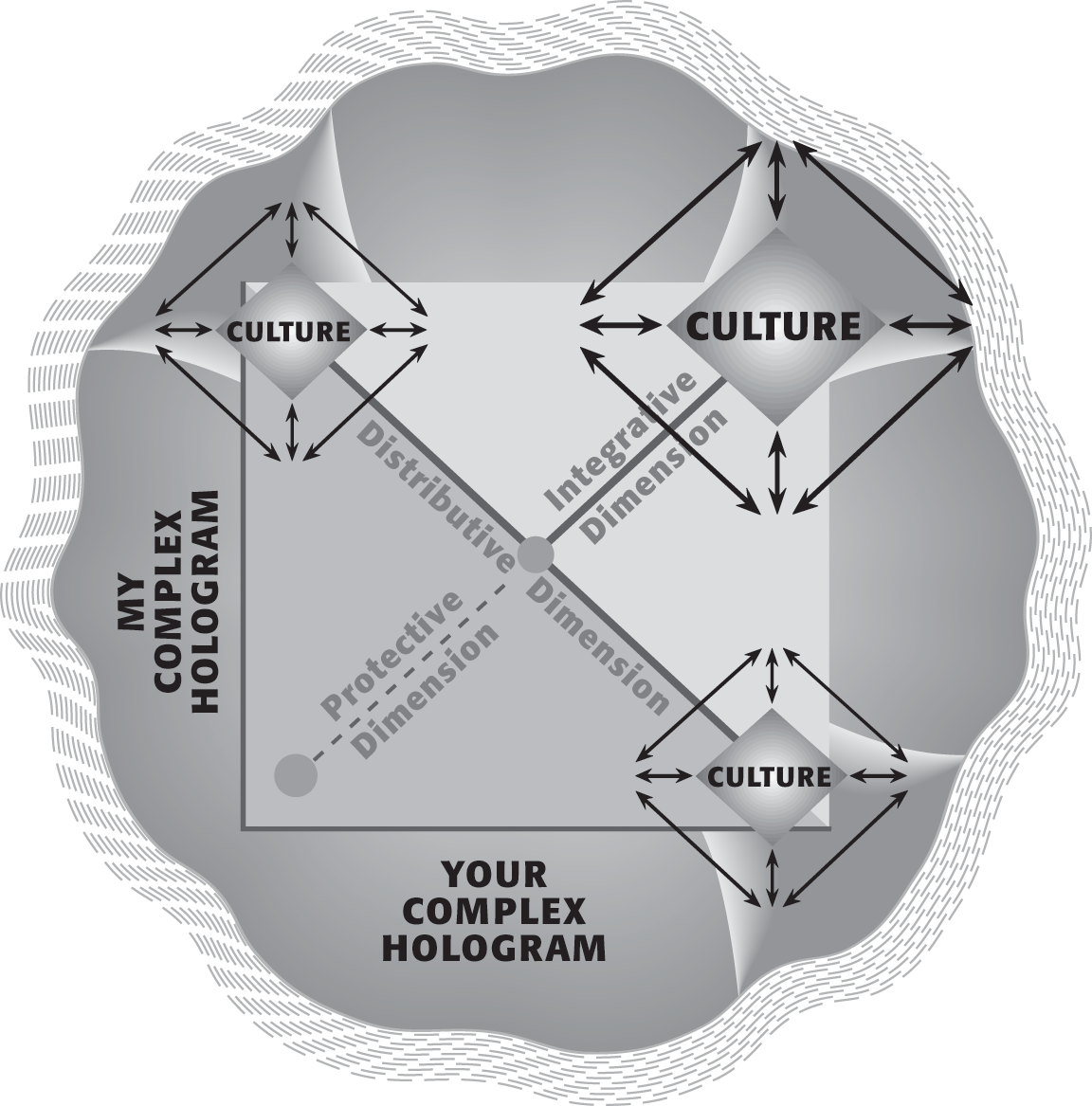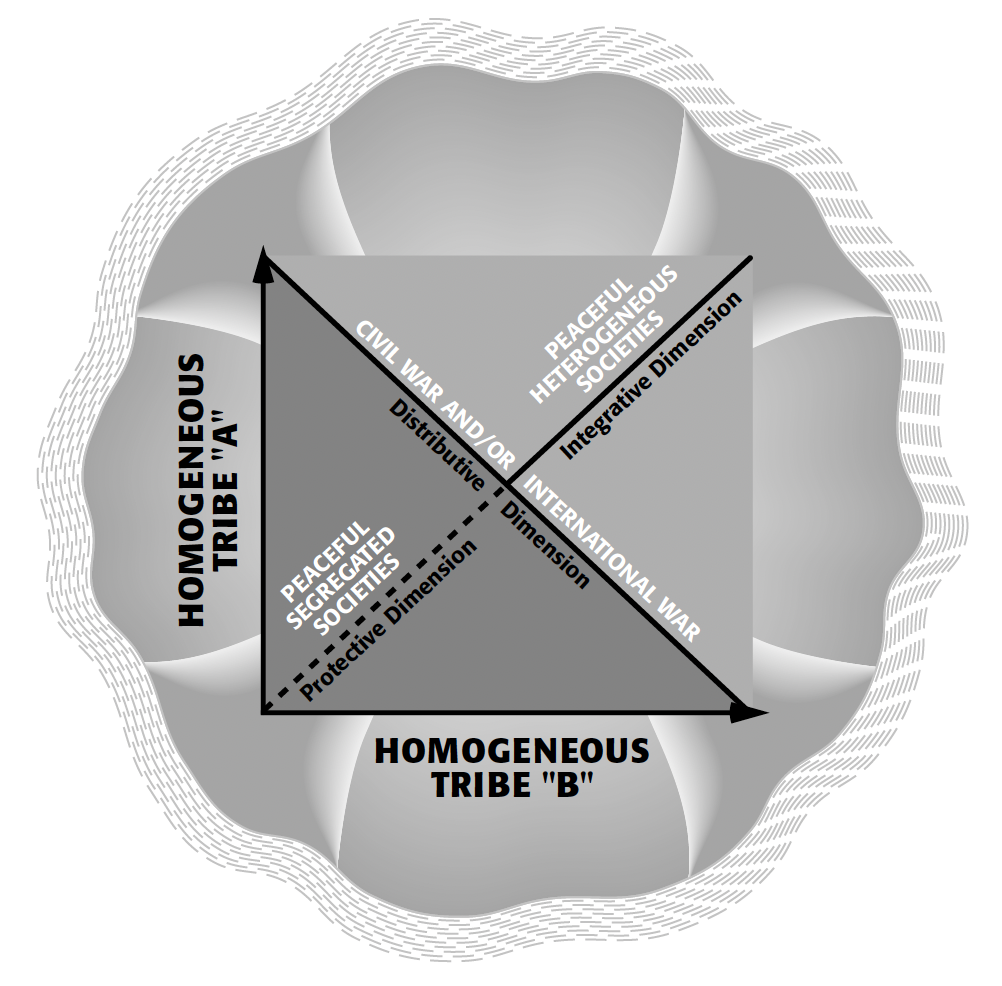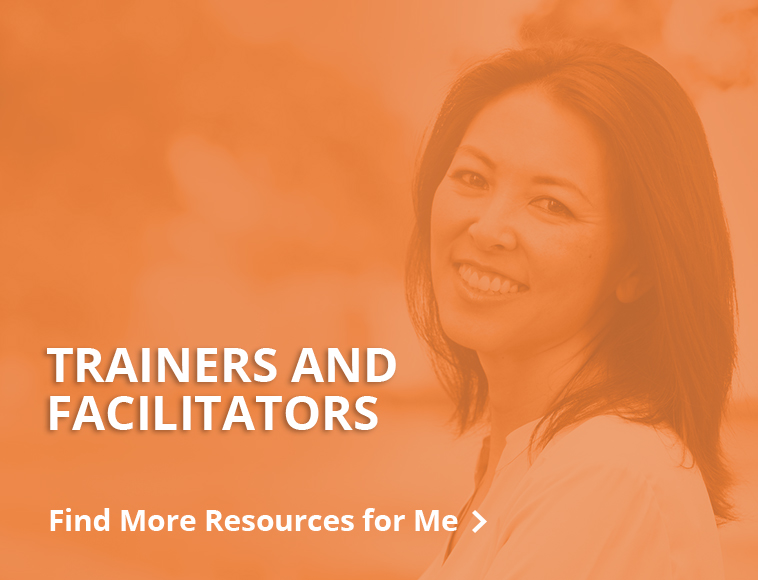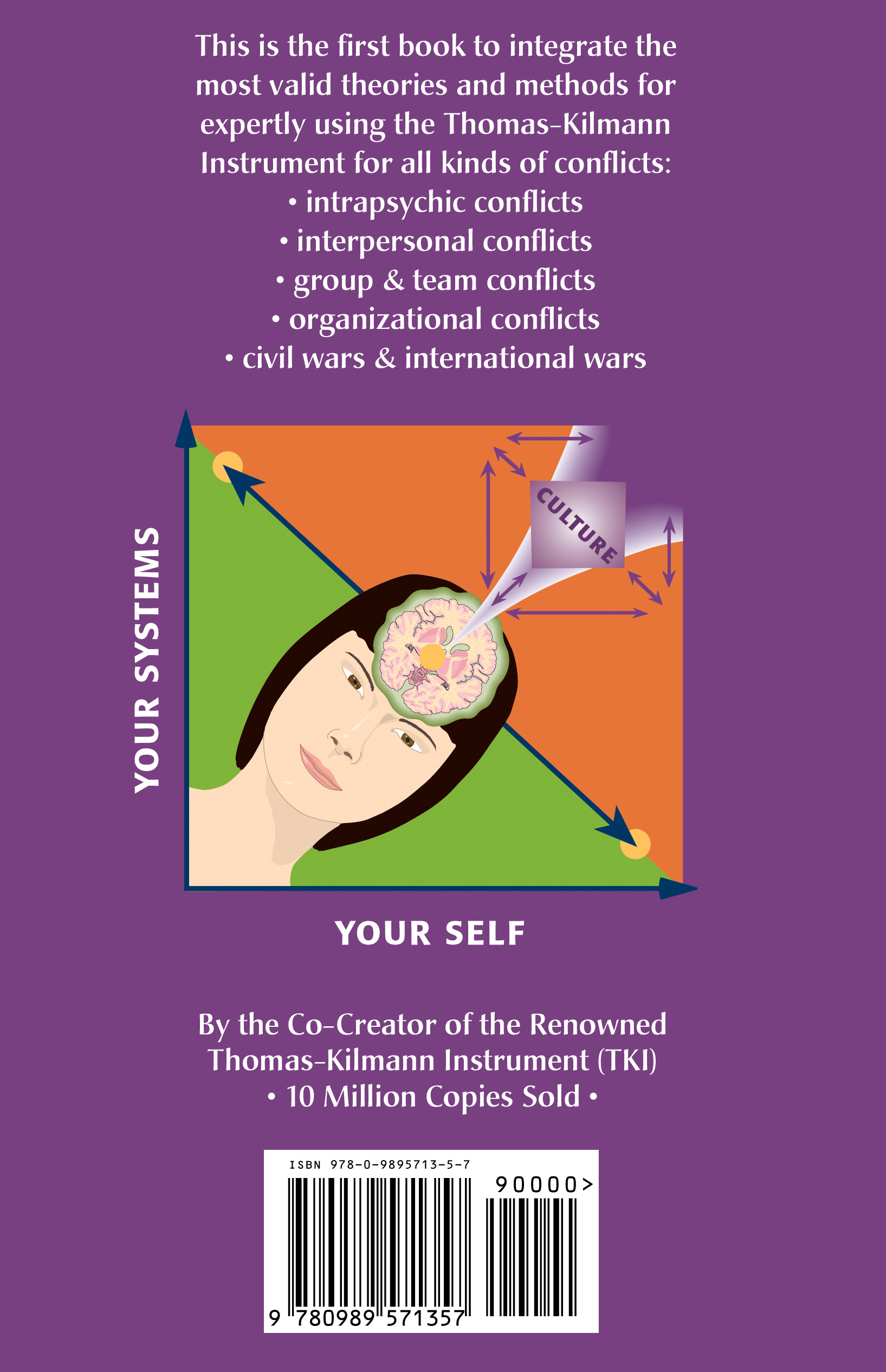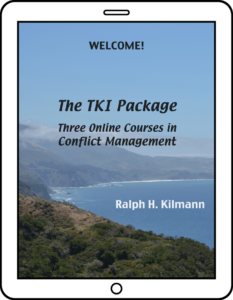Interview Dr. Kilmann
About His TKI Book
If you’re a media person who would like to interview the author about his TKI Book, then click on the button below, SEE PRESS KIT, for more information.
DR. RALPH H. KILMANN’S
ONLY TKI BOOK (PUBLISHED IN 2023) PRESENTS THE MOST VALID THEORIES AND THE MOST EFFECTIVE METHODS FOR USING THE THOMAS-KILMANN INSTRUMENT IN ALL KINDS OF CONFLICT SITUATIONS
If you scroll down this page (or click on the button directly below), you can purchase this 302-page book (including 49 elegant illustrations) on Amazon.com in the United States and also on Amazon.com in other countries around the globe (e.g., Canada, Mexico, United Kingdom, Germany, India, Japan, and Australia):
Kindle electronic version = $9.95 USD to buy or…
$0.00 to read with “Kindle Unlimited”
Hardcover paper version = $44.95 USD
If you would like to purchase 20 or more copies of the hardcover version of Dr. Kilmann’s TKI Book, you can order that larger quantity directly from Kilmann Diagnostics at a 20% discount (at $35.95 USD per book, instead of $44.95 USD per book) and then have those books sent in bulk to one specified address in the continental United States: You select the shipping method and we charge you for the shipping expense. Contact Us if you wish to learn more about our discounted option for purchasing and receiving 20 or more TKI Books in bulk.
In the next section, you’ll discover why, in 2023, Dr. Kilmann felt compelled to integrate all his theories and methods for using the TKI instrument in all kinds of situations—including intrapersonal conflicts, interpersonal conflicts, group and team conflicts, organizational conflicts, and civil wars and international wars.
FROM THE PREFACE OF THE BOOK:
MASTERING THE THOMAS-KILMANN
CONFLICT MODE INSTRUMENT (TKI)
As I was assembling all the materials I’d ever created about the Thomas-Kilmann Instrument and conflict management (since the early 1970s when the TKI was first created), I knew I had to develop a meaningful sequence of chapters—starting with the basics of the TKI Conflict Model and the TKI assessment tool and then proceeding with how to USE that model and tool for resolving all kinds of interpersonal conflicts, team conflicts, organizational conflicts … all the way to facing the most devastating conflicts on this planet: civil wars and international wars.
In the first chapter, I discuss the TKI Conflict Model, it’s two underlying dimensions, the five conflict-handling modes, and the three diagonal dimensions that enable a deep interpretation of your or anyone else’s TKI results. Then I cover the eight key attributes of a conflict situation (e.g., the level of stress, the level of trust, the relative importance of the issue to both parties, etc.), which determine when to choose—and how to use—each one of the five conflict modes: competing, collaborating, compromising, avoiding, and accommodating. Next, I demonstrate how to conduct an in-depth interpretation of six very different TKI Profiles. Afterwards, each person can then use their personalized TKI results to significantly improve their conflict-handling behavior.
For the purpose of demonstrating how the TKI Conflict Model and the TKI assessment tool can continue to evolve into new forms and applications far beyond what was initially envisioned way back in the early 1970s, I then discuss the first new TKI product to appear in a few decades: the new TKI TEAM Report (as distinguished from the long-standing TKI INDIVIDUAL Report).
I next discuss one of the most novel and profound applications of the TKI Conflict Model and the TKI assessment tool: How you address your INNER conflicts plays a major role in how you address all your OUTER conflicts. In my experience, the focus of virtually all discussion in conflict management concerns the variety of OUTER conflicts that people face in life; yet we can utilize the same conceptual model and use the same assessment tool to address four INNER conflicts: (1) Are you a physical body OR an energy body? (2) Are you governed by your ego OR your soul? (3) Is your self (as some combination or synthesis of your ego and your soul) separate from your surrounding systems OR are your systems integrated with who you are? (4) Have you resolved your primal relationships OR have you (whether consciously or not) chosen to spend the remainder of your life being emotionally drained and mentally disorganized by your unresolved wounds from the past?
I conclude my TKI Book by discussing the most disastrous conflicts that were ever created by and for the human species: CIVIL WARS and INTERNATIONAL WARS. I purposely left this topic for last, since it necessarily makes use of everything that came before (all the prior chapters) and much, much more. In particular, to fully appreciate the CAUSES of WAR, I introduce the progressive stages of human consciousness, with particular emphasis on the ethnocentric stage (also called tribal consciousness) that rigidly locks two different homogeneous tribes into sustained conflict (and/or war) with one another. To enable humanity to thrive as well as survive on this planet well into the distant future, human beings must move beyond their prior conditioning that compels them to only be comfortable and mindful with other people of the “same kind,” what has been called, ethnocentric or tribal consciousness. Instead, human beings will be best served by fully embracing worldcentric consciousness (“we are one”), so they can eventually expand to spiritcentric consciousness (“we are everything everywhere all at once”).
Click to see the Table of Contents
Mastering the Thomas-Kilmann Conflict Mode Instrument —TKI—
List of Illustrations
Preface
Chapter 1: The Thomas-Kilmann Conflict Model
Two Underlying Dimensions,
Five Conflict-Handling Modes,
Three Diagonal Dimensions
Chapter 2: When to Use Each Conflict-Handling Mode
Assessing the Eight Key Attributes of a Conflict Situation
Chapter 3: Interpreting Six Different TKI Profiles According to the TKI Conflict Model
Chapter 4: Vital Distinctions for Better Understanding and Using the Five Conflict-Handling Modes
Chapter 5: Addressing the Unique Validity & Reliability Issues for the Thomas-Kilmann Instrument 59
Chapter 6: Taking the TKI Assessment Tool with Either the Standard or Modified Instructions
Chapter 7: Identifying and Resolving the Systems Conflicts Between Members and Their Organization
Chapter 8: Presenting the New TKI Team Report
Identifying Challenges and Remedies for Resolving Conflicts in Groups and Teams
Chapter 9: The 50-Year History of the Thomas-Kilmann Instrument
From Conception to the Present
Chapter 10: The Most Frequently Asked Questions About the Thomas-Kilmann Instrument
Chapter 11: Using the TKI Conflict Model to Address Your Four INNER Conflicts
Integrating Your Ego, Soul, Systems, and Your Primal Relationships All Within a Physical/Energy Body
Chapter 12: Using the TKI Assessment Tool with the TKI Conflict Model in Many Situations
Key Insights and Lessons Learned
Chapter 13: Using the Myers-Briggs Type Indicator with the Thomas-Kilmann Instrument
Magnifying and Resolving Differences
Chapter 14: Civil Wars & International Wars
Facing—and Resolving—Our Most Devastating Conflicts
Bibliography
Index
About the Author
WHY READ KILMANN’S NEW BOOK ON MASTERING THE THOMAS-KILMANN CONFLICT MODE INSTRUMENT?
If you or your clients are eager to learn the most up-to-date and integrated knowledge about the TKI Conflict Model and the TKI assessment tool, you’ll be delighted to study Dr. Kilmann’s TKI book: No one has more relevant experience with the TKI instrument, which he co-created with Dr. Thomas in the early 1970s. Because conflict management and conflict resolution are rapidly becoming one of the most important skills for people to have in our global village (of differences, diversity, and discord), this revolutionary TKI BOOK is especially relevant to these OCCUPATIONAL IDENTITIES:
Purchase
Mastering the Thomas-Kilmann
Conflict Mode Instrument (TKI)
You can purchase Mastering the Thomas-Kilmann Instrument
(302 pages, including 49 elegant illustrations) for
$44.95 USD in the hardcover paper version or
$9.95 USD to buy the Kindle electronic version
(or $0.00 to read with Kindle Unlimited) … on
Amazon.com in countries around the globe:
THE TKI PACKAGE:
Take our three TKI-based courses and earn your TKI certification when you pass the three Final Exams
This course collection is a great choice for trainers, consultants, coaches, mediators, therapists, and peacebuilders who wish to gain mastery of the TKI assessment for applications with individuals, couples, groups, organizations, institutions, communities, and nations. To earn our “Certification for Mastering the Thomas-Kilmann Instrument,” you must pass the three Final Exams: (1) BASIC Training in Conflict Management, (2) GROUP Training in Conflict Management, and (3) ADVANCED Training in Conflict Management.



